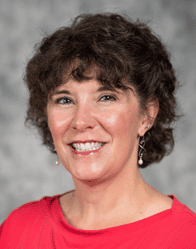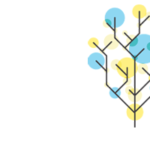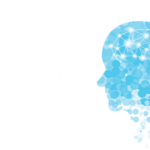Season 1 – Episode 34 – Changing Landscape of Adult Learners
According to the National Center for Education Statistics, adult learners are students who are 25 years of age or older and currently represent approximately half of all college and university students. A report from the Lumina Foundation found more than 25% of undergraduate students are raising a child and approximately 58% are working while enrolled in college or university. Adult learners often enroll in college or university in order to change careers or earn new skills to further their established careers. Often adult learners will have to balance multiple competing priorities while navigating the learning process, such as a career, family, military service, and other circumstances.
Episode Transcript
Click to expand/collapse
Darren: From CITI Program, I’m Darren Gaddis, and this is On Campus. Today, what is an adult learner? How has a landscape of adult learners shifted in the past several years? And in what ways can institutions support adult learners?
I spoke with Kristen Becker, an assistant professor in the School of Library and Information Studies at Texas Women’s University. Her research focuses on the impact of administration, leadership, and policy on stakeholders.
As a reminder, this podcast is for educational purposes only. It is not intended to provide legal advice or guidance. You should consult with your organization’s attorneys if you have questions or concerns about relevant laws and regulations discussed in this podcast. Additionally, the views expressed in this podcast are solely those of the presenter.
Hi Kristen. Thank you for joining me today.
Kristen: Well, thank you for the invitation.
Darren: To get us started today, what is an adult learner?
Kristen: Well, typically we define an adult learner as someone that’s at least 25 years old. And because of this, adult learners are one of the most diverse populations in higher education. And I’m not referring to ethnic diversity, but everything from age, such as baby boomers to millennials, to economic or employment status. So when considering adult learners, we also need to factor in military service and family circumstances, because many of our adult learners are caregivers of children or aging parents.
Many adult learners are also retraining to compete in the new workforce landscape or because they’re seeking their second career after leaving their first, and this could be due to retirement or just a desire to do something different. So serving this very complex group of adult learners creates issues sometimes within higher educational institutions which are not easily solved, nor are they going to go away in the near future.
Darren: How has the landscape of adult learners changed over the past several years and higher education?
Kristen: Well, I think this is really a two-part question. We first need to address why adults are going back to college. It’s a little different now than it was four years ago, so there really has been a shift from adults seeking higher education during the recession at like 2018, where more adults were likely to go back to school to build marketable skills to get back into the workforce quickly.
Following COVID, however, I’m hearing from a lot of students that they’re seeking a career change for two main reasons. First, because during the pandemic, they really began to understand how short life really is, and many of them realize that they’re unhappy in their jobs, and that’s part of the great resignation. So this prompted them to make a life change. A one key factor of their unhappiness was the lack of adjustable work hours and remote work options. So with COVID, flexibility really became a reality and it became a high priority for many of the adult learners because they want to achieve a better work-life balance than they had before COVID. Many of them are also going back just to gain some new skills for these professions that would allow them greater flexibility or work from home options.
The second thing we need to consider about adult learners is the landscape has changed in how we educate adult learners. For example, micro-learning and video learning are becoming more prominent. And micro-learning takes concepts and it breaks them down into small chunks to help the learner digest the information quickly, and then the learner has the ability to quickly apply this to a real world setting. Videos are often a part of this, and a great example of some of the micro-learning that is occurring are the short courses such as Cybersecurity that’s often required by employers.
We also have opportunities now such as LinkedIn learning and some other websites that allow adult learners to quickly gain skills, because it breaks down these complicated topics into bite-sized pieces, allowing learners to gain some knowledge, leave and then return to the modules at times that are convenient to them.
Something else that’s fairly new in higher education with adult learners is game-based learning or gamification. And this is a fairly new concept where higher education institutions are using game concepts to deliver educational messages. And this might be something like a Jeopardy like activity to deliver knowledge, and it really does appear to resonate with adults and improve their retention of information.
Darren: In what ways may adult learners need different support structures than, quote, unquote, traditional students?
Kristen: So we do have Knowles’ six assumptions for adult learners. The first one is that adults have self-concepts and they’re independent. Therefore, they have the desire to be empowered by the learning experience, whereas traditional students typically need instructors to facilitate and structure the learning process.
The second assumption is that adult learners draw from background knowledge and a vast reservoir of experiences. In traditional settings, instructors usually create engaging methods for students to gain and retain knowledge. And this is because students often lack that previous experience that can help them understand and analyze the information. Adults do have this prior experience that allows them to see the application of the course content and assignments in these real world practical situations.
Now, third, adult learners learn best when the training can help them solve an immediate real life problem. And this centers on acquiring the necessary and often very specific skills for personal and professional development. In contrast, traditional students need learning to be scaffolded by beginning with the basics and moving towards comprehension.
Fourth, adult learners are more problem centered versus subject centered, since learning connects to everyday applications. Within adult learning, it’s often problem centered with a larger focus on current events or real life situations, whereas traditional students are subject focused with prescriptive curricula.
The fifth assumption is that adult learners tend to gain motivation from internal self-motivated sources, while children or traditional students gain motivation from external sources such as teachers and parents.
And finally, and one of the things that I think is the most important, is that adults require a rationale for learning something new. Adults really do need to understand the why of learning, and if we compare this to traditional students, we can better understand the needs of adult learners.
I think a key takeaway away when comparing traditional to adult learners is that faculty are considered primarily a facilitator of shared knowledge for adult learners, whereas teachers take on the role of bestowing knowledge to children or traditional students.
Darren: What shifts have you seen in adult learners since transitioning back to campus following the COVID-19 pandemic?
Kristen: So first, I believe that we’re on the other side of trauma that has deeply impacted humanity. And although we continue to hear that we’re back to normal, as educators we need to understand that many of our adult students continue to live in states of high anxiety and they’re basically waiting for the other shoe to drop.
Many students have expressed to me that they fear that their immunization for COVID will not be effective against some of the new strains. They’re worried about inflation. They’re worried about the war in Ukraine. And they’re also worried about the effects of the recent midterm election. So this uncertainty is manifesting itself in various ways.
For example, some students are showing a lack of focus by not completing assignments accurately. I’m really having to do a lot more handholding this semester than in the previous semesters with these adult students because they’re not really taking the time to read through the assignment thoroughly, they’re not maybe watching the videos. And my inbox is just filling up at an alarming rate of questions that I’ve never been asked before on assignments, and also a lot of emails asking for additional time on assignments. So there seems to also be kind of a lack of commitment where the students are missing deadlines, they’re requesting this additional time.
And I can tell you one student that I spoke with talked about how she’s really trying to compartmentalize her life into three distinct buckets, her family, her work, and her education. And she’s telling me that she’s often feeling very overwhelmed from the last several years. Her children are also trying to play catch up in school and reestablished these social networks that they had prior to COVID in the shutdown of schools. And when her family or her work compartments kind of push those boundaries, she’s allowing it to overshadow her education, because at this point, for this student, getting an advanced degree is optional.
And I’ve had similar conversations with many other students who are still battling this anxiety about what’s going to happen next, where’s the world going to go? So just this feeling of being overwhelmed, and it does feel like students are trying to do too much at this point in their lives with trying to balance the complexities of post COVID world, inflation, work-life balance, and then adding on to it this educational experience.
Darren: How has COVID-19 shifted the motivations of adult learners going back to school or continuing their education?
Kristen (11:11): A lot of students are talking about just feeling overwhelmed. They say that COVID-19 really has shifted their motivations. They’re wanting to go back to school in order to go into careers where maybe they’re no longer front facing, or customer facing, where they can work from home, where they have the flexibility to adjust their working hours, to really kind of have a better work-life balance than what they’ve had in the past.
I’ve also had many students tell me that they’re having to force themselves to be motivated, almost to the point where they’re paralyzed, where they have so many things that they need to do with their families, with their work, and with their education that they just don’t even know where to begin. So a lot of things are falling through the cracks, and that’s why we’re seeing this lack of focus by not completing assignments correctly, by not having things turned in by deadlines. And so it really has kind of altered the motivation and the reason why they’re going back to school. Education is something that these individuals have opted for. They’re paying for it, they’re paying to have this additional stress, and I think that right now, adults are just really taking on too much, whether it’s their course load, instead of taking three or six graduate hours, they’re trying to take nine, so it really is impacting their ability to be successful in the program.
Darren: How can institutions better support adult learners to further their careers or reach their career goals after college?
Kristen: I think one of the most important things that institutions can do is to have applicable skills attainment in the courses that they can apply in their chosen career. So making sure that every assignment that we put in front of a student helps them gain the skills that they need in order to be successful once they graduate and they’re working in their chosen profession. And identifying not only how the assignment is done, but also why it’s important for their development as a professional. Going back to that, the ‘why’ matters. Making sure that they really understand this assignment is important to you because you’re going to use it. You’re going to need to understand this skill and how to do these various things in order to be successful.
I think also online degrees are absolutely necessary for the majority of adult learners. The need to have this flexibility to learn at times that are convenient to them is very important. But in tandem with that, we need to make sure that faculty are accessible in the evenings, or on weekends, or when students need them the most in order to answer questions to meet the student’s needs. And we need to make sure that we have something such as video conferencing available for students to make an appointment with us and then discuss with us what are the intricacies of this assignment, can you provide additional feedback to me on my prior assignment. I’m struggling, help. How can you help me?
In going into that, we need to make sure that our students feel supported. As institutions, we need to offer mental health resources to our students. We need to have cohorts of adult students that are connected where our students can go and they can engage with each other and interact, and maybe we need to have discussion forums that are for students only, where they can put in questions, provide feedback, just kind of get guidance from other students who are in that program.
And then we also need to make sure that our student associations are there and that they’re working with our students to make the experience the best that it can be. I know that our student organization just recently, they had like a craft time where anyone who wanted to, they could sign up. And the student association actually sent out the crafts to all of our adult learners who wanted to participate, and then they got into a video conferencing and they did the craft together. And that’s how we need to engage our adult learners to kind of give them a break from the reality of a family and work and say, “This is your time. Come together, have that little mental break, learn from each other and be able then to move forward through the program”.
Darren: What else should we know about adult learners?
Kristen: I think one of the most important things we need to realize about adult learners is they’re very complex. As I said at the beginning, it’s not just ethnic diversity, but we have people from 25 up to possibly over a hundred who are adult learners and they’re all different. We have people serving in the military, actively. We have people who are retired from military service, people who are caregiving for their aging parents or children. And we need to understand that each adult learner is unique and we need to help them the best that we can by providing good instruction and good feedback, and to realize that for many of them, they’re still struggling in this post COVID world to balance their personal, their professional, and their educational responsibilities. Very important that we acknowledge that and that we support our students in whatever ways that we can.
Darren: Kristen, thank you for joining me today.
Kristen: Well, thank you so much. I appreciate it.
Darren: Be sure to follow, like and subscribe to On Campus with CITI Program to stay in the know If you enjoyed this podcast, you may also be interested in CITI Program’s other podcast On Tech Ethics and On Research. You can listen to all of CITI Program’s podcast on Apple Podcast, Spotify, and other streaming services.
I also invite you to review our content offerings regularly as we are continually adding new courses and webinars that may be of interest to you. All of our content is available to you anytime through organizational and individual subscriptions. You may also be interested in CITI Program’s Navigating Online and Hybrid Teaching course. Please visit CITI Program’s website to learn more about all of our offerings.
How to Listen and Subscribe to the Podcast
You can find On Campus with CITI Program available from several of the most popular podcast services. Subscribe on your favorite platform to receive updates when episodes are newly released. You can also subscribe to this podcast, by pasting “https://feeds.buzzsprout.com/1896915.rss” into your your podcast apps.
Recent Episodes
- Season 1 – Episode 33: Introducing CITI Program’s New Podcast: On Tech Ethics
- Season 1 – Episode 32: The Impacts of Grading: Part 2
- Season 1 – Episode 31: The Impacts of Grading: Part 1
- Season 1 – Episode 30: Food and Housing Insecurity: Higher Education
Meet the Guest

Kristen Becker, MLS, MBA, EdD – Texas Woman’s University
Dr. Kristen L. Becker is as an Asst. Professor in the School of Library and Information Studies at Texas Woman’s University. Her research focuses on the impact of administration, leadership, and policy on stakeholders.
Meet the Host

Darren Gaddis, Host, On Campus Podcast – CITI Program
He is the host of the CITI Program’s higher education podcast. Mr. Gaddis received his BA from University of North Florida, MA from The George Washington University, and is currently a doctoral student at Florida State University.









